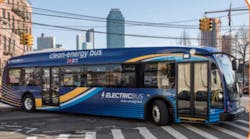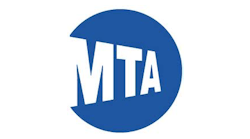Any public official, New York Metropolitan Transportation Authority (MTA) board member, MTA management staff member or transit advocate who opposes the planned four percent fare hikes in 2025 misses why they are needed. They were previously planned as part of the MTA's $51 billion 2020 - 2024 Five Year Capital Plan. Since the Urban Mass Transportation Act of 1964, over $158 billion in taxpayer generated dollars have subsidized both the capital and operating costs for the MTA and its various operating agencies.
Under numerous past MTA Five Year Capital Plans, both New York City and New York State collectively have cut billions of their own respective financial contributions. They repeatedly had the MTA refinance or borrow funds to acquire scarce capital funding, formerly made up by hard cash from both city hall and Albany. On a bipartisan basis, this included past Govs. Mario Cuomo (Democrat), George Pataki (Republican), Elliot Spitzer (Democrat), David Patterson (Democrat), Andrew Cuomo (Democrat) and current Gov. Kathy Hochul (Democrat). Billions more are still needed from both the state and city to make up for past cuts over previous decades.
Everyone insisted the MTA continue financing more and more of the capital program by borrowing. As a result, 17 percent of the annual MTA budget goes for covering the costs of debt service payments. By the end of the next MTA 2025 - 2029 Capital Program Plan, this will grow to 24 percent. This means less money is available for operations to provide more frequent service to riders. It also means there is less cash to maintain the state of good repair and safety. At the end of the day, the cupboard may be bare for any system expansion.
Contrast city hall and Albany with Washington, D.C. Federal support for transportation has remained consistent and growing over past decades. When a crises occurred, be it 9/11 in 2001 or Hurricane Sandy in 2012, Washington was there for us. Additional billions in assistance above and beyond yearly formula allocations from the Federal Transit Administration (FTA) was provided. In 2009, the American Recovery and Reinvestment Act provided billions more.
Most federal transportation grants require a 20 percent hard-cash local share. In many cases, the FTA accepted toll credits for local share. This saved the MTA $2 billion in the current $51 billion 2020 - 2024 Five Year Capital Program. Even more will be saved under the upcoming $68 billion 2025 - 2029 Five Year Capital Program. The estimated budget of $68 billion assumes that the New York State Legislature and Gov. Hochul between now and the adoption of the new state budget on April 1, 2025, includes new revenue sources above and beyond congestion toll pricing to make up for the current $33 billion shortfall out of the proposed $68 billion new capital plan.
Fare hikes are periodically required if the MTA and operating agencies such as New York City Transit bus, subway and Staten Island Railway, MTA Bus, Long Island Rail Road and Metro-North Railroad are to provide the services millions of New Yorkers count on daily. They are inevitable due to increasing costs of labor, power, fuel, supplies, materials, routine safety, state of good repair, replacement of worn out rolling stock, upgrades to stations, yards and shops, as well as system expansion projects necessary to run any transit system and inflation.
For those public officials and others who oppose any fare increases and will be quick to demagogue on this issue (for political purposes to win upcoming elections), just how would the MTA balance financial shortfalls? Which capital improvement projects should the MTA cancel to help balance the budget and avoid fare increases? Which route(s) would you support service reductions to save operating dollars?
Would you volunteer to reduce service, cancel or delay any capital projects benefiting constituents in your district? What future union contracts would you ask for more flexible work assignments and reduce salary increases? Will you ask employees to increase their contributions toward medical coverage and retirement pensions?

Larry Penner
Larry Penner is a transportation advocate, historian and writer who previously served as a former director for the Federal Transit Administration Region 2 New York Office of Operations and Program Management. This included the development, review, approval and oversight for billions in capital projects and programs for New Jersey Transit, New York Metropolitan Transportation Authority, NYC Transit bus, subway and Staten Island Railway, Long Island and Metro North railroads, MTA Bus, NYCDOT Staten Island Ferry along with 30 other transit agencies in New York and New Jersey.






